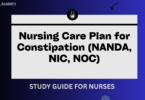In our daily lives, we may notice variations in our blood pressure throughout the day. One common observation is that blood pressure tends to be higher in the morning than at other times.
This phenomenon has intrigued researchers and health professionals alike, prompting investigations into the underlying causes. In this article, we delve into the reasons behind the morning surge in blood pressure and its implications for overall health.
Before we explore why blood pressure tends to be elevated in the morning, it’s essential to grasp the basics of blood pressure and its regulation in the body.
What is blood pressure?
Blood pressure refers to the force exerted by circulating blood against the walls of blood vessels. It consists of two main measurements:
- Systolic Pressure: The pressure in the arteries when the heart beats and pumps blood out.
- Diastolic Pressure: The pressure in the arteries when the heart rests between beats.
Regulation of Blood Pressure
Blood pressure is regulated by a complex interplay of various physiological mechanisms, including the nervous system, hormones, and kidney function. Factors such as hydration status, sodium intake, physical activity, and stress can also influence blood pressure levels.
Morning Surge in Blood Pressure
The morning surge in blood pressure refers to the phenomenon wherein blood pressure tends to be higher upon awakening and in the early hours of the day. Several factors contribute to this observation:
Natural Body Rhythms
The body’s internal clock, known as the circadian rhythm, plays a significant role in regulating various physiological processes, including blood pressure. Research suggests that blood pressure follows a circadian pattern, with levels typically dipping during sleep and rising gradually before waking up.
Morning Cortisol Spike
Cortisol, often referred to as the “stress hormone,” exhibits a natural spike in the early morning hours, peaking shortly after awakening. Cortisol levels influence blood pressure regulation by promoting vasoconstriction (narrowing of blood vessels) and stimulating the release of adrenaline, both of which can elevate blood pressure.
Increased Physical Activity
Upon waking up, individuals often engage in physical activities such as getting out of bed, showering, and preparing for the day. These activities can temporarily raise blood pressure due to increased heart rate and cardiac output.
Postural Changes
Changes in body position from lying down to standing up can also affect blood pressure. When transitioning from a supine position during sleep to an upright posture upon awakening, blood pressure may temporarily increase to maintain adequate blood flow to the brain and other organs.
Implications for Health
While the morning surge in blood pressure is a normal physiological response, it may have implications for cardiovascular health, especially in individuals with hypertension or other cardiovascular risk factors. Research suggests that exaggerated morning blood pressure surge may be associated with an increased risk of adverse cardiovascular events, such as heart attacks and strokes.
Conclusion
The morning surge in blood pressure is a natural phenomenon driven by the body’s internal clock, hormonal changes, physical activity, and postural adjustments. While temporary elevations in blood pressure upon awakening are normal, individuals with hypertension or cardiovascular risk factors should be mindful of their morning blood pressure patterns and work with healthcare providers to manage them effectively.
FAQs
Does caffeine intake affect morning blood pressure?
- Yes, caffeine consumption, particularly in the morning, can temporarily raise blood pressure levels due to its stimulatory effects on the nervous system.
Should I be concerned if my blood pressure is consistently higher in the morning?
- If you have hypertension or cardiovascular risk factors, consistently elevated morning blood pressure may warrant further evaluation and management by a healthcare professional.
Can lifestyle modifications help reduce the morning surge in blood pressure?
- Yes, adopting healthy lifestyle habits such as regular exercise, stress management, limiting salt intake, and maintaining a healthy weight can help mitigate the morning surge in blood pressure.
Is the morning surge in blood pressure more pronounced in older adults?
- Research suggests that older adults may experience a more significant morning surge in blood pressure, highlighting the importance of monitoring blood pressure patterns in this population.
Can medication timing influence the morning surge in blood pressure?
- Yes, the timing of antihypertensive medications can impact the morning surge in blood pressure. Working with a healthcare provider to optimize medication timing may help manage blood pressure fluctuations throughout the day.
Read more: Blood Pressure







